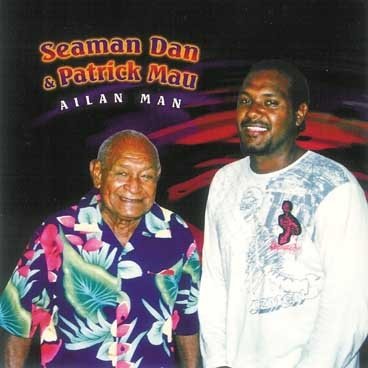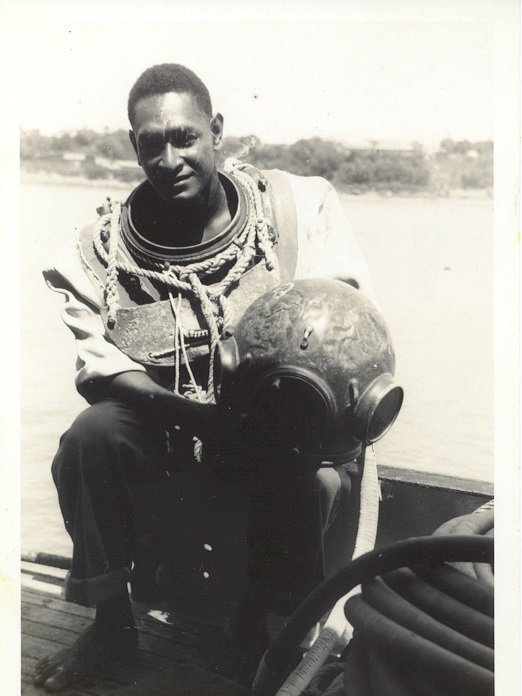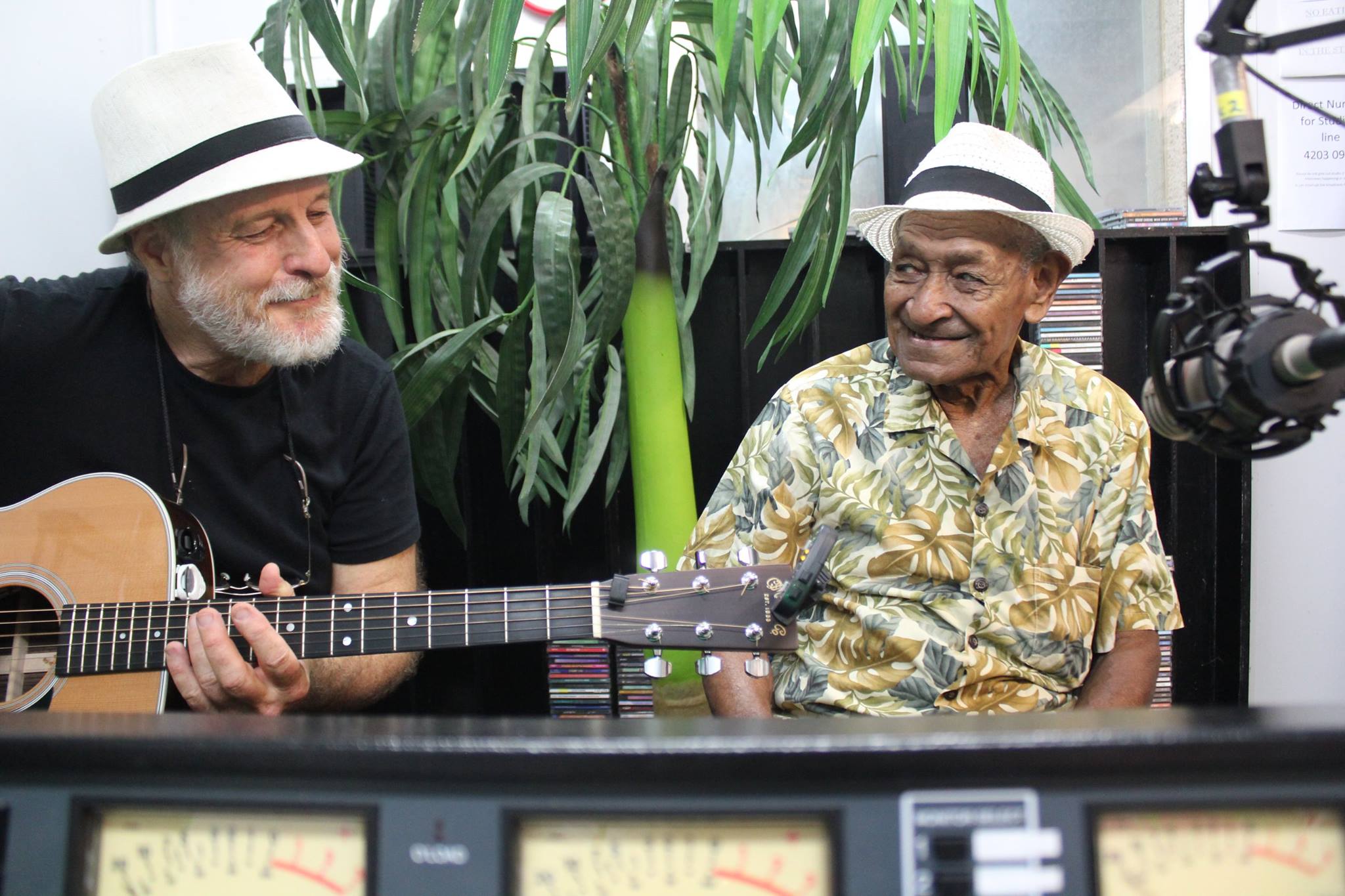Content warning: Aboriginal and Torres Strait Islander readers are advised this article contains images of a person who has died. Permission has been granted by the person’s family to use their images.
Few people launch a music career in their 70s and then go on to win multiple awards, but a Torres Strait Islander did just that and became an inspiration for generations to come.
Recording eight albums, Henry Gibson Dan – affectionately known as ‘Uncle Seaman’, and professionally as ‘Seaman Dan’ – was a baritone crooner with a less than conventional life.
His catch-cry of “steady, steady” from his seafaring days was shorthand for his life’s philosophy and music.
Dan died last month aged 91. After a memorial service in Cairns on Wednesday, he will be carried back to the Torres Strait ahead of his funeral on Thursday Island this Friday.
As the Torres Strait mourns the passing of a legend, it will also celebrate a man who has brought widespread recognition to the region through his trademark ‘Ailan’ (island) or ‘hula’ musical style, which was of significant importance to his grandson, hip-hop artist and filmmaker Patrick Mau, aka Mau Power.
“His gift was to story-tell with music. He was a very big influence on me,” he told SBS News.
“I got to rap with my grandfather and that was something special for both of us, telling our stories through music.
I got to rap with my grandfather and that was something special for both of us.
– Patrick Mau, aka Mau Power
“Uncle used to call it ‘hee hop’ not ‘hip hop’ and I recorded the song ‘Ailan Man’ on his fourth album.
“It was reggae hip-hop – two generations merging to create something that will live forever.”
Despite Dan’s late start in the industry, recording his first album in 1999, he won critical acclaim, becoming the oldest person to win an ARIA Award (the first of two). He was also inducted into the National Indigenous Music Hall of Fame and received an Order of Australia just 12 months ago.
“He never forgot his roots and his music captured that. He made people feel very comfortable about their heritage and history, and to be able to be proud to tell their stories,” his grandson said.
Island identity
Dan was born in 1929 on Thursday Island in the remote Torres Strait, then one of the most multicultural communities in Australia.
Torres Strait Traditional Owners are Melanesian people with a rich history of song and dance that had been fused with the choral traditions introduced by Christian missionaries.
As one of the world’s most important shipping channels, the region drew people from across the Pacific, Europe, Asia and the Americas to thriving pearl shell and beche-de-mer (sea cucumber) industries.
Born to Kitty Savage from Darnley Island, he was “island” adopted and took his name from the Dan family. His grandfather Sam Savage was from Niue, his great grandfather Douglas Pitt Senior from Jamaica, and his great grandmother Sopa Kalemo from Lifou in New Caledonia.
“His music actually captures that, it’s very multicultural, it’s timeless, influenced by many cultures, and it was music that would capture many generations,” Dan’s grandson said.
After spending the Second World War in Cairns as a teenager, he returned to the Straits in 1947 and five years later jumped on a fishing boat known as a pearl lugger to go diving for pearl shell across the north of Australia.
Immersed in a rich musical tradition, he was a storyteller, mixing old standards with unique songs influenced by his pearl diving days, as well as taxi driving, prospecting in Papua New Guinea and the love for his island home.
“Seaman leaves behind a large body of professional recordings that document a way of life and culture,” said his producer and music researcher Dr Karl Neuenfeldt.
Seaman leaves behind a large body of professional recordings that document a way of life and culture.
– Dr Karl Neuenfeldt
“Oral tradition is very important in the Torres Strait. He was a great entertainer and storyteller and his gift was to take those memories and put them into song.”
Local celebrity
While in Darwin, Dan soon became a local celebrity, with regular Saturday night appearances at the Darwin Hotel, singing contemporary standards. Nat King Cole was his favourite, mixed with songs about the Torres Strait.
Music was his ticket into pubs which banned non-whites. He was paid in drinks, and soon just known as ‘Seaman Dan’.
But the lure of Straits called him home and he spent his last years in the dangerous industry diving in the shark-infested waters of the Darnley Deeps.
Still working on boats, he had his first brush with the music industry in 1984 when his old school friends the Mills Sisters recorded his song TI Blues, about Thursday Island, which became one of the region’s signature tunes.
“‘TI Blues stood out. It was the first time anyone had sung and recorded a song about Thursday Island and it captured the maritime ambience,” Dr Neuenfeldt said.
Dr Neuenfeldt “discovered” Dan in 1999. He was singing on Thursday Island and he was struck by his voice and guitar sound.
“When we first started I’d look at the chord shapes that he was making and when I tried to play it, it sounded awful,” he said.
“He’d learnt what he called the ‘jazz chords’ during World War Two, when the black American soldiers were in Cairns, and he would go to house parties and these guys would be playing and that’s the style he wrote in.
“Seaman quite naturally tuned his guitar five halftones flat of concert, that fitted his voice, and that was something unique about him.”
They recorded his first album of laidback ‘Ailan’ songs together when Dan was a 70-year-old great grandfather.
“The first time I walked into a professional studio was when he was recording ‘Follow The Sun’, I was there in the studio when it was created and that was the moment I made the decision that ‘this is where I want to live, in studios’,” his grandson said.
“That is what his ultimate legacy will be, to show the next generation that if you love something and believe in yourself, you can achieve anything.”
“I think his happy place was performing for local people and entertaining,” Dr Neuenfeldt said.
“He always said, ‘if people are smiling, then I’m doing my job’.”
A shimmering legacy
Right up to his mid-80s, Dan regularly played the Torres Hotel, known as Australia’s northernmost pub, arriving with ‘Shimmering Blue’ strapped to his walking frame.
“Uncle Seaman had a favourite guitar, which was rather inexpensive but had a nice blue colour to it, he was still writing songs on it right up to the last couple of years”, Dr Neuenfeld said.
“He wrote a great song called ‘Walking Frame Blues’ when he had mobility issues, so songs about his life and his generation’s life, and that’s why people found it authentic and honest.”
Now his legacy will be carried by his grandson to pass on to the next generations.
“I’m focused on taking the young fella home to his resting place but I told him that we would create something for him to celebrate the legacy,” his grandson said.
“Not only for him but all the icons, the Mills Sisters and all those who came before us, to be able to pass that opportunity on.
“I say proudly that if it wasn’t for these great people, I wouldn’t have the opportunity I have now in music, so I’m a direct product of the foundations that they built.”









